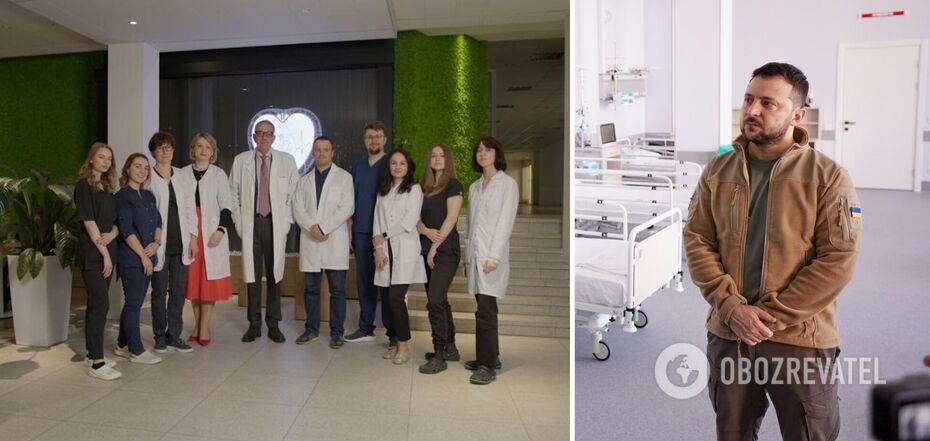Society
The treatment of patients with diabetes: global practices are already in Ukraine
Diabetes mellitus is one of the most common metabolic disorders among the population, not only in Ukraine but also around the world, and unfortunately, the number of patients is expected to grow. The great danger of diabetes is that it is a complex disease that, in the absence of adequate treatment, quickly affects many organs (systemic atherosclerosis with the development of myocardial infarctions, strokes, and impaired blood flow in the lower extremities, diabetic kidney and eye damage, nerve damage, and the development of diabetic foot, which often ends in amputation). Unfortunately, despite modern treatment options, mortality rates among such patients are still quite high.
That is why the newest medical field, cardiometabolic medicine, is actively developing in developed countries. It is based on a fundamentally different approach - the treatment of a person, not a disease - based on a holistic view of the patient's body and an integrated approach to its treatment.
Adequate treatment and follow-up of a patient with diabetes and the aforementioned "bouquet" of complications require a team of specialists of various profiles and a wide range of diagnostic and therapeutic capabilities. But until recently, the approach to treating patients in Ukraine was extremely inefficient and inconvenient:
- The necessary specialists are usually "scattered" among different medical institutions.
- Multidisciplinary hospitals do not have all the diagnostic capabilities available.
- Highly specialized institutions deal only with their own areas (cardiac centers operate on the heart but lose sight of everything else, vascular surgeons do not deal with diabetes, endocrinologists do not treat cardiovascular complications, etc.).
As a result, the patient goes from doctor to doctor and from medical institution to institution for weeks or months, wasting time, being treated by everyone "a little bit," but due to the lack of communication between medical professionals, each of the doctors has no idea about the full picture of the patient.
But fortunately, the situation in our country is changing, and despite martial law and tragic events, the cardiometabolic approach has begun to be implemented in Ukraine (the country's first cardiometabolic disease unit has recently opened at the Kyiv Center for Pediatric Cardiology and Cardiac Surgery, Clinic for Adults). Like the global cardiometabolic centers with which the Ukrainian branch cooperates, it implements the best international practices and professes the same approach: to treat a person, not a disease.
President of Ukraine Volodymyr Zelenskyi and Head of the Department of Cardiometabolic Diseases and the Department of Cardiovascular Diabetology, Professor Borys Mankovsyi, attended the opening of the new cardiometabolic department.
How is the cardiometabolic approach implemented in Ukraine?
Firstly, the Department of Cardiometabolic Diseases has all the necessary specialists who work in teams on each patient - cardiologists, endocrinologists, nutritionists, neurologists, psychologists, and, if necessary, nephrologists, ophthalmologists, podiatrists, and physical therapists.
Secondly, the Center has all the diagnostic tools (CT, MRI, angiography, expert-level ultrasound diagnostic devices), as well as a modern medical laboratory that allows for a wide range of laboratory tests (including all metabolic and hormonal panels).
That is, everything a patient needs is collected in one place and at one time. Accordingly, all the necessary examinations and medical procedures for patients with diabetes are carried out in one day (or rather, in 8 hours).
As a result, within 8 hours, the patient gradually undergoes all the planned examinations, and as the results are received, each specialist makes his or her own opinion about the patient. At the end of the examination, all the specialists come together and discuss the patient's condition and therapy from their respective positions, reaching a consensus. Then the patient's "path" can develop according to two scenarios: if the patient does not need more serious examinations or interventions, he or she receives all the necessary recommendations and is discharged for further observation. If the patient has complications, he or she can undergo a full range of additional examinations: MRI of the heart, coronary angiography, CT angiography, stenting of atherosclerotic lesions, coronary artery bypass grafting, minimally invasive valve surgery, etc.
In addition to working with patients with diabetes, the Cardiometabolic Diseases Department pays great attention to the timely detection (at early stages) of diseases provoked by diabetes. Since the team knows where diabetes hurts the most, the list of tests clearly corresponds to the list of all the most common complications from carbohydrate metabolism disorders.
This holistic approach allows us to detect the disease at the stage of risk factors or in the early stages (which is not usually done in urban clinics), to select the appropriate drug therapy, and prevent diabetes and its satellite diseases from "starting" and, accordingly, from reaching the point of needing surgery.





























